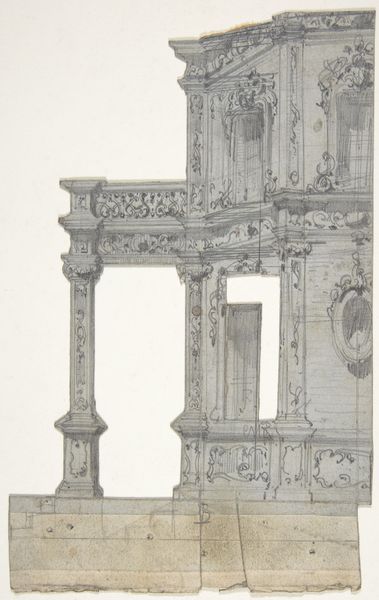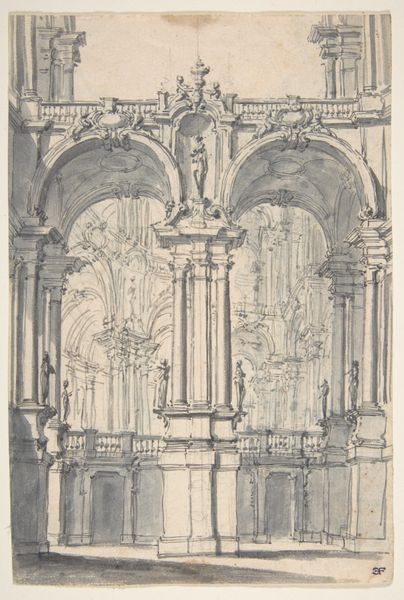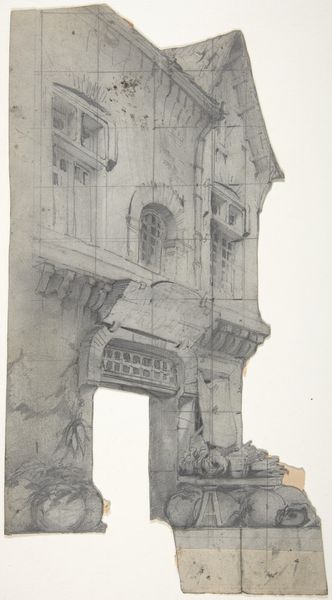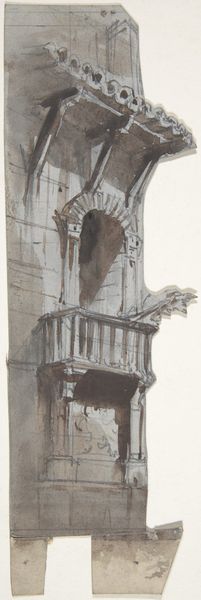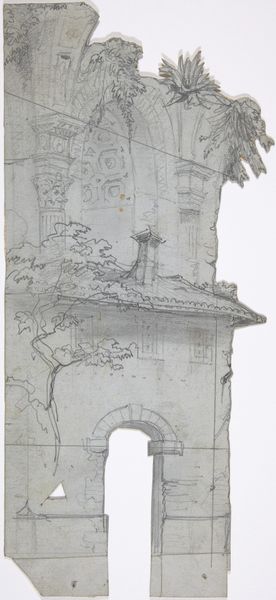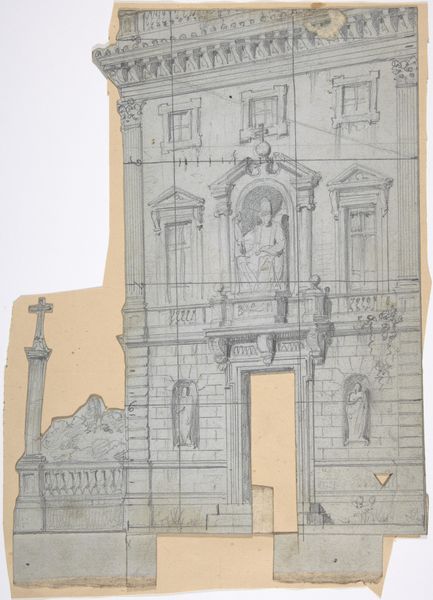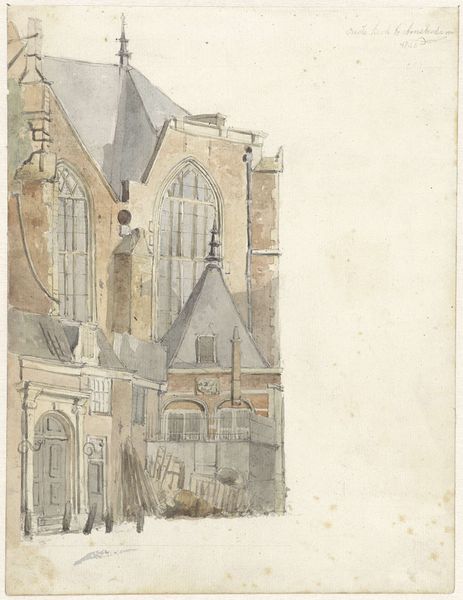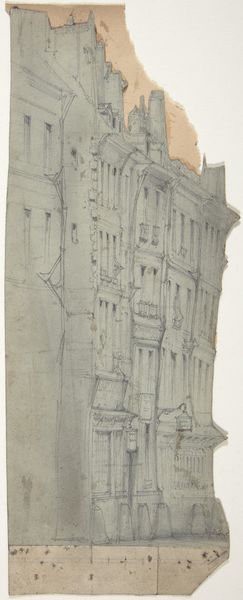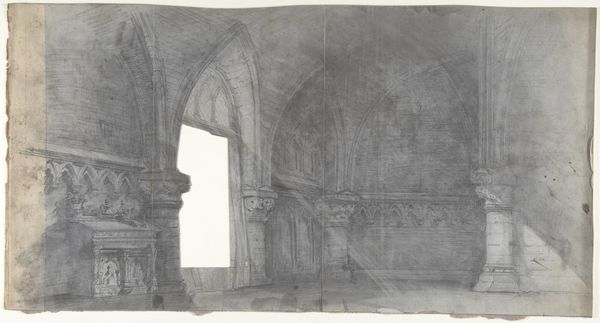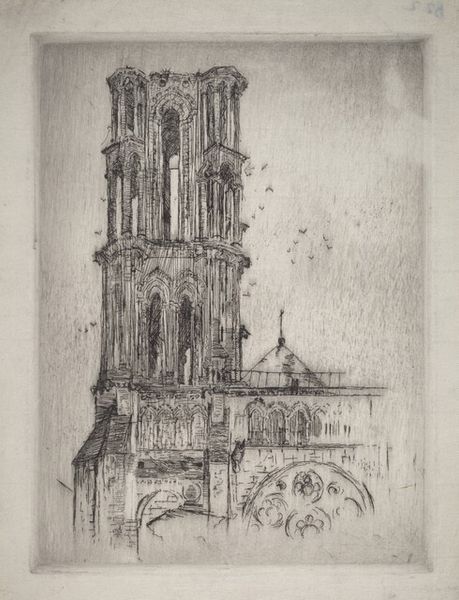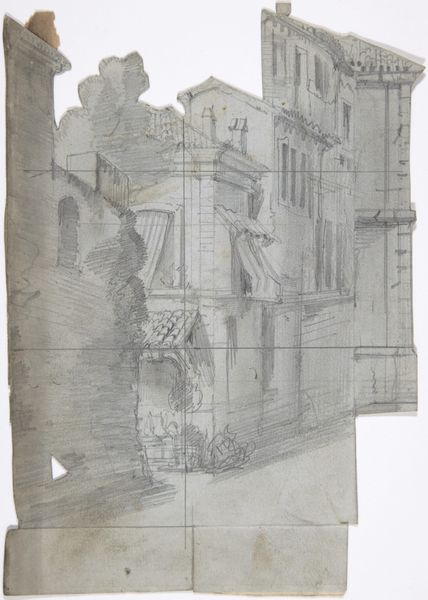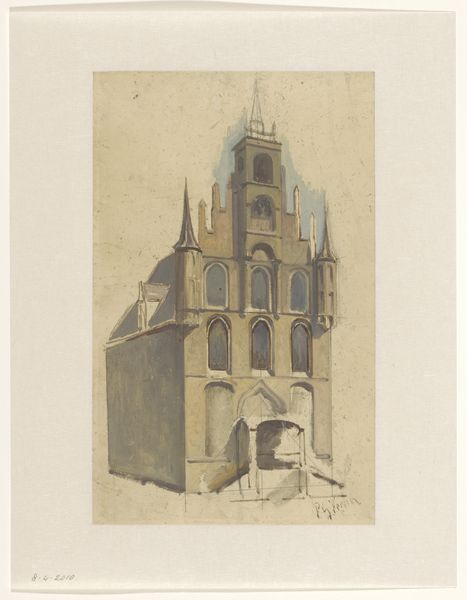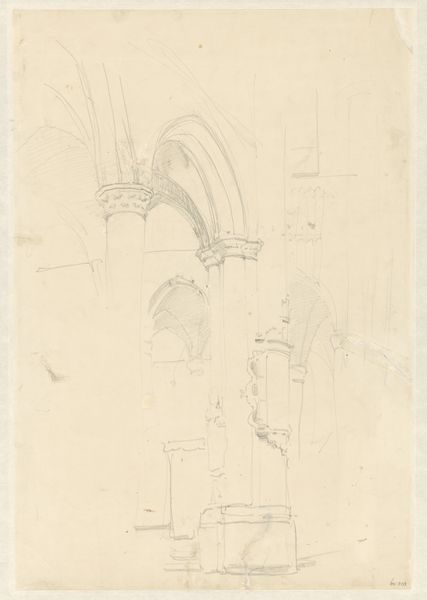
Design for a Stage Set at the Opéra, Paris 1830 - 1890
0:00
0:00
drawing, print, pencil, architecture
#
drawing
#
neoclassicism
# print
#
sculpture
#
charcoal drawing
#
form
#
geometric
#
pencil
#
line
#
cityscape
#
history-painting
#
architecture
Dimensions: Irregular sheet: 11 x 6 7/16 in. (28 x 16.3 cm)
Copyright: Public Domain
This stage set design for the Paris Opéra is a pencil and gray wash on paper by Eugène Cicéri. The architectural fragment looms, its stark lines sketching out a world of implied grandeur. Cicéri masterfully balances precision with suggestion. The cool, muted grays evoke a world caught between reality and illusion. The archway, with its cut-out center, presents a void. This absence is as crucial as the drawn lines, inviting the viewer to complete the image, to project their own vision onto the stage. The composition divides our attention between the solid forms and empty spaces. This interplay isn’t merely aesthetic; it hints at the semiotic function of stage design. A stage set serves as a sign, a cultural code to be deciphered, its role being to frame and enhance the narrative. Consider the grid lines visible beneath the drawing. They remind us that this is a construct, an artifice. The set design itself is a signifier, a framework upon which the drama unfolds, continually renegotiating its meaning with each performance.
Comments
No comments
Be the first to comment and join the conversation on the ultimate creative platform.
